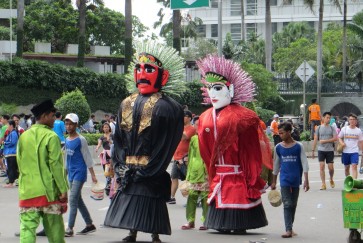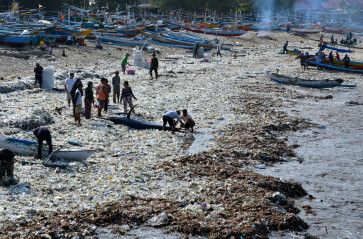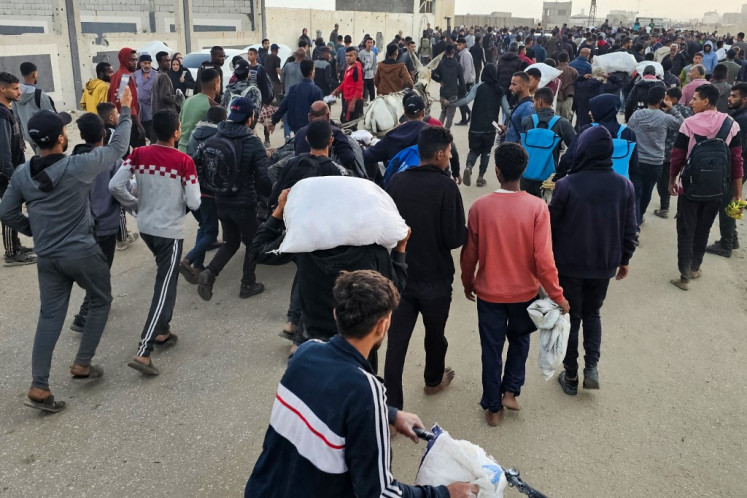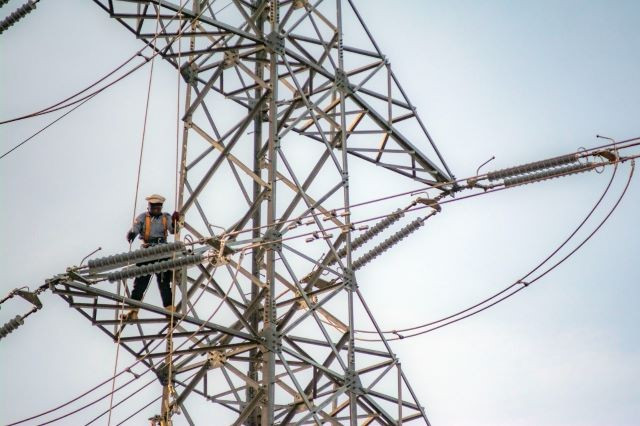Talk to an old friend: Indonesia-North Korea
In line with our endless support and solidarity toward minority countrymen accused of being “infidels” by groups of thugs, and workers as well as peasant groups whose rights are denied by the government and business groups, we shall not forget that in another part of the world, many people also live in fear, poverty and under constant threat of systematic violence
Change text size
Gift Premium Articles
to Anyone

I
n line with our endless support and solidarity toward minority countrymen accused of being “infidels” by groups of thugs, and workers as well as peasant groups whose rights are denied by the government and business groups, we shall not forget that in another part of the world, many people also live in fear, poverty and under constant threat of systematic violence.
Back during the Sukarno era, through the Jakarta-Pyongyang-Beijing axis, Indonesia and North Korea had strong ties.
However, both countries have grown on divergent paths. For the last 15 years, while Indonesia has embraced democracy, North Korea has yet to see significant change from its authoritarian regime.
In an informal discussion with researchers and human rights activists in Jakarta, Marzuki Darusman, UN Special Rapporteur on the situation of human rights in the Democratic People’s Republic of Korea, stated that for three generations, North Korea’s military regime has embodied the combined best practices of state repression as happened in Gulag Soviet Union and Apartheid South Africa at the peak of racist government. No one could imagine how that horror can possibly prevail in the modern era.
Darusman himself admitted that he had not witnessed the human rights situation in North Korea at first hand, since the North Korean government refused to cooperate and denied the Special Rapporteur’s request to visit the country.
The report he submitted to the United Nations General Assembly in September 2012 was mainly based on observation and interviews with Thailand government officials, representatives of non-governmental organizations and UN bodies in Thailand, as well as a compilation of selected reports and briefing papers.
However, that methodological weakness does not degrade the quality of the report on describing the infamous picture of the human rights situation in North Korea. Over 150,000 to 200,000 people are imprisoned for alleged political crimes and 16 million people continually suffer from enduring food insecurity.
The writing echoes Amnesty International’s 2012 report that affirms human rights violations by North Korean officials still widely occur in the form of forced labor, public executions, torture and other ill-treatment in numerous political prison camps.
Sadly, the condition seems likely to persist in the near future. For once, hope for a change in North Korea had appeared following the succession from the late Kim Jong-il to his son Kim Jong-un in December 2011.
However, the positivity vanished into thin air as soon as the new supreme leader deliberately continued his father’s legacy to take forward nuclear and ballistic missile development as a government priority.
In mid-February 2013, North Korea conducted a nuclear test that was interpreted as a regime response toward UN Security Council Resolution 2087. Previously, on Dec. 12, 2012, North Korea had launched a rocket with ballistic missile technology.
The action forced UN members to adopt a new resolution on North Korea.
Up to now, there have been 13 resolutions regarding North Korea. Among them, Resolution 2087 demands that North Korea abandons all nuclear weapons and existing nuclear programs in a complete, verifiable and irreversible manner, and to halt any further launches that use ballistic missile technology, nuclear tests or any further provocation.
Resolution 2087, however, is falling on deaf ears. To the eyes of intra- as well as extra-regional powers, the nuclear test has shown North Korea’s uncompromising stance to uphold nuclear development, regardless of the international community’s objections to it — notwithstanding the People’s Republic of China being part of the opposition.
Not only by the traditional great-powers was such nuclear posturing regretted. Rising powers like Indonesia, as conveyed by Foreign Minister Marty Natalegawa, had the same view. He stated, “The government of Indonesia is deeply concerned with the DPRK decision to proceed with the underground nuclear test despite the appeals of many, and its obligations under UN SC resolutions 1718 (2006), 1874 (2009) and 2087 (2013), (The Jakarta Post, Feb. 14).
Taking the above into consideration, we can see that the crisis in North Korea is not easily resolved. State sovereignty is one thing, but what is more striking is the confidence of North Korea’s leaders and the capability of its regime as a whole to sustain political power over — if any — domestic opposition, and therefore to ignore the international pressure, despite the fact that many North Koreans suffer from hunger and malnutrition.
The possession of nuclear and ballistic missile technology has made things more complicated. North Korea has succeeded in exploiting the “rocket launch” and “nuclear test” as a show of power to limit the influence of the great powers and broader international actors, state as well as non-state, in the region.
Within this context, it might be useful to bring up an alternative way to include the Association of Southeast Asian Nations (ASEAN) in Six-Party Talks — to become Seven-Party Talks, supposedly. Within the ASEAN Regional Forum framework, Dewi Fortuna Anwar, vice president’s deputy secretary for political affairs, has suggested that ASEAN could become a good mediator (the Post, May 29, 2012).
Apart from ASEAN, Indonesia should play a more constructive role in mediating the conflicting parties in the Korean Peninsula, both between North-South Korea and North Korea and the US. Impartiality is the first principle that must be adopted. Indonesia should learn from the impasse encountered by the Six-Party Talks.
The public have come to understand that the deadlock could not be detached from two things, i.e. first, partisanship from one of the great-power members, and second, North Korea’s unfortunate gesture to quit the peace dialogue.
With a relatively same approach like that applied to the military junta in Myanmar, Indonesia has to convince Pyongyang that nuclear development and ballistic missile tests would bring nothing but continuous instability in the region. Open dialogue would make the best possible solution.
It is hoped to bring an end to both the possibility of major casualties as the outcome of deadly conflict in the region and North Korean government limitations to fulfill the people’s basic needs.
Last but not least, Indonesian society should not turn a blind eye to the humanitarian crises in North Korea.
Famine, forced labor and torture are among common practices put into effect by the military regime to suppress the liberty and freedom of expression of the North Koreans. Indonesia’s continued support is needed not only for peace in the region, but also to emphasize the relevance of humanity’s universal values in the modern world.
The writer is a researcher at the center for political studies, Indonesian Institute of Sciences (P2P-LIPI).









